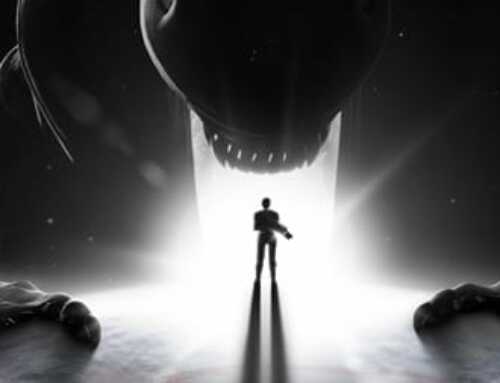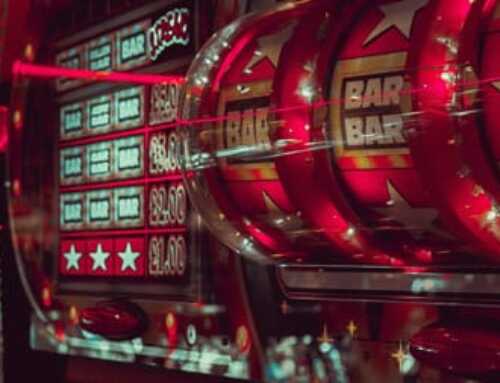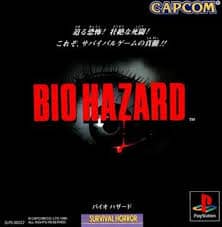 Yesterday, March 22nd 2016, was the 20th anniversary of the original Japanese release of a game called “Biohazard” which was released just over a week later in North America with a new title, “Resident Evil.” Yes, Capcom’s classic horror game is almost old enough to drink. With ten games in the main series, eleven spin-off games, five live action movies, and even a restaurant there is no denying that the Resident Evil series has had an enormous cultural impact (and on a more personal note, the 2002 remake of the original game is what really got me interested in horror gaming). So join me as we take a look back at the history, highlights, and impact of twenty years of Resident Evil.
Yesterday, March 22nd 2016, was the 20th anniversary of the original Japanese release of a game called “Biohazard” which was released just over a week later in North America with a new title, “Resident Evil.” Yes, Capcom’s classic horror game is almost old enough to drink. With ten games in the main series, eleven spin-off games, five live action movies, and even a restaurant there is no denying that the Resident Evil series has had an enormous cultural impact (and on a more personal note, the 2002 remake of the original game is what really got me interested in horror gaming). So join me as we take a look back at the history, highlights, and impact of twenty years of Resident Evil.
The original “Resident Evil” made history right out of the gate when it coined the term “survival horror.” It may seem a small thing to coin a phrase like that, but it wasn’t. In just two words, “Resident Evil” had summed up not just its own design philosophy but that of many other games that had come before it (such as “Sweet Home” or “Alone In The Dark”). Now there was a quick, easy way to refer to those sorts of games, with their heavy reliance on atmosphere, puzzle-solving, and scarcity of resources. By being the game to name the phrase, “Resident Evil” secured its role as the spearhead of a new wave of these games. Other games would scramble to replicate the success of “Resident Evil” and its survival horror design, even going so far as to copy some of the less well-recieved aspects (such as “Silent Hill” using the oft-panned movement control system) in order to be perceived as a more authentic survival horror game. It wasn’t just a flash in the pan, either. The original “Resident Evil” has been re-released on every generation of consoles that have come out since its debut.
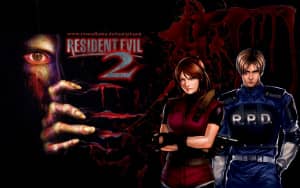 After the first game was such a run-away success, it came as no surprise that Resident Evil expanded out from a single game into a franchise. 1998 saw the release of “Resident Evil 2” and the first two Resident Evil novels by S.D. Perry, both of which opened up the wider world of the series’ story. Two was again a phenomenal success, becoming the fastest-selling video game in North
After the first game was such a run-away success, it came as no surprise that Resident Evil expanded out from a single game into a franchise. 1998 saw the release of “Resident Evil 2” and the first two Resident Evil novels by S.D. Perry, both of which opened up the wider world of the series’ story. Two was again a phenomenal success, becoming the fastest-selling video game in North 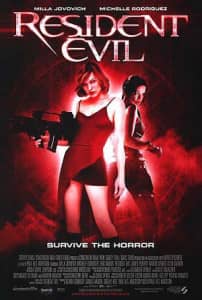 America and grossing over $19 million in less than a week. After that the sequels just kept coming, with 199 seeing the release of “Resident Evil 3: Nemesis” and “Code Veronica” coming out in 2000. Also released in 2000 was the first spin-off game, “Resident Evil Survivor” which switched to the gameplay to a first-person light-gun shooter. In 2002, the first Resident Evil movie was released and the original “Resident Evil” received an enormous graphic overhaul and was re-released on the Nintendo GameCube. The following years saw the releases of a prequel, and a second spin-off series.
America and grossing over $19 million in less than a week. After that the sequels just kept coming, with 199 seeing the release of “Resident Evil 3: Nemesis” and “Code Veronica” coming out in 2000. Also released in 2000 was the first spin-off game, “Resident Evil Survivor” which switched to the gameplay to a first-person light-gun shooter. In 2002, the first Resident Evil movie was released and the original “Resident Evil” received an enormous graphic overhaul and was re-released on the Nintendo GameCube. The following years saw the releases of a prequel, and a second spin-off series.
As a series so heavily focused on zombies, it might seem that Resident Evil was well-suited to ride the zombie craze that started in the mid 2000s to even further heights of popularity. Not so. Instead, with “Resident Evil 4” Capcom began to shift the focus of the games away from the desperate scarcity of the originals toward a more action-oriented direction. In addition, the virus zombies of the previous games were gone, replaced with parasite-infected villagers and cultists. This shift marked a change in the direction of horror gaming. Much like how the first “Resident Evil” helped to establish survival horror, its shift into a more action based style was then mirrored by games like “Silent Hill: Homecoming” and “F.E.A.R.” However, while “Resident Evil 4” was well received, the subsequent action-oriented Resident Evil’s (5 and 6) were far less so, with 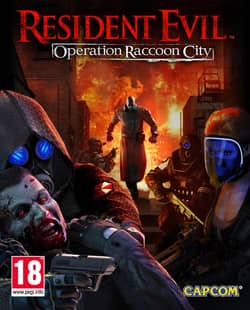 “Resident Evil 6” currently holding an average user rating of 5/10 on Metacritic. Executive producer Hiroyuki Kobayashi responded to criticism of the game by saying that the fans and creators are like two parents disagreeing about what is best for their child. The same year as 6, two other Resident Evil games came out, a third-person shooter called “Operation Raccoon City” that was met with similarly luke-warm response, and “Revelations” a much more well-received entry in the main series which attempted a return to older, survival-horror gameplay. “Revelations” received a sequel in 2015.
“Resident Evil 6” currently holding an average user rating of 5/10 on Metacritic. Executive producer Hiroyuki Kobayashi responded to criticism of the game by saying that the fans and creators are like two parents disagreeing about what is best for their child. The same year as 6, two other Resident Evil games came out, a third-person shooter called “Operation Raccoon City” that was met with similarly luke-warm response, and “Revelations” a much more well-received entry in the main series which attempted a return to older, survival-horror gameplay. “Revelations” received a sequel in 2015.
The future of the series seems a little uncertain. The success of Revelations seems to indicate that the fans want a return to the survival-horror roots of the series. However, the next Resident Evil game due out is “Umbrella Corps” a shooter playable in both first- and third-person. While the game is not out yet, it seems like this may be a bit too similar to “Operation Raccoon City” for my tastes. However, Capcom is also working on a remake of “Resident Evil 2” with no release date yet given. So, there’s a spin-off and a remake coming out. No word on what the future of the main series holds.
Of course, there’s far more to Resident Evil than just the games. There are currently five live-action movies, and two animated movies. There is a Resident Evil themed energy drink (it’s called T-virus antidote, and as far as energy drinks go it doesn’t taste too bad). Universal Orlando’s 2013 Halloween Horror Nights featured a haunt attraction based on the Resident Evil 2  & 3. There are Resident Evil t-shirts; in fact, I am wearing one right now, and just about every time I wear this shirt someone on the street will stop me to talk about the series.
& 3. There are Resident Evil t-shirts; in fact, I am wearing one right now, and just about every time I wear this shirt someone on the street will stop me to talk about the series.
While Resident Evil’s cultural influence may have waned in the last few years, there is no denying that it made a huge impact both on video games and on the zeitgeist of pop culture. The series helped to create that zombie-mania that led to things like “The Walking Dead.” It’s certainly been a wild twenty years, and I for one cannot wait to see what further surprises the Resident Evil series has in store for us.


